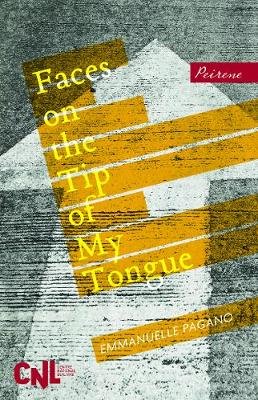
Claudio Morandini, Snow, Dog, Foot (2015)
Translated from the Italian by J Ockenden (2020)
Peirene’s series theme for 2019-20 is ‘Closed Universe’, and this first title takes us into the troubled mind of one old man living in the Alps.
Adelmo Farandola (always referred to by his full name) spends the winter up in the mountains away from people, and the summer even further up in the mountains. When we meet him, he goes down to the village to stock up on supplies for the winter. The shopkeeper is surprised to see him because (she says) he visited only last week. Adelmo has no memory of that.
For most of Morandini’s novel, it’s just Adelmo, his dog, and the young ranger who goes by from time to time. Adelmo is snowed in for months, then has to decide what to do when he sees a foot poking out of the snow.
What makes Snow, Dog, Foot so compelling is the ambiguity running through it. Reality is fluid for Adelmo, so there’s no fanfare when (for example) the dog starts talking to him, because that’s just the way things are. Adelmo has complete trust in his senses, which means we have constant mistrust. The book grows ever more poignant as the layers of perception peel away and we understand what’s happening.

Emmanuelle Pagano, Faces on the Tip of My Tongue (2012)
Translated from the French by Jennifer Higgins and Sophie Lewis (2019)
Part of Peirene’s ‘There Be Monsters’ series, this is a collection of linked stories set in rural France. These are vivid tales of character: the hitchhiker who stands in drivers’ blind spots. The old man near the holiday rental who’ll tell stories of the local area to anyone who will listen. The father remembering his daughter’s childhood through an old jigsaw puzzle.
Characters and images recur, not least the roads that link up places but also lead away from them. The repeating references to individuals and events serve to remind how small a community can be. But the details of the stories reveal how even familiar faces may be unknown or forgotten.

Birgit Vanderbeke, You Would Have Missed Me (2016)
Translated from the German by Jamie Bulloch (2019)
Another title from the ‘There Be Monsters’ series. Vanderbeke draws on her own childhood for this tale of an East German refugee trying to settle into West German society in the 1960s.
I particularly like the childlike tone of the narration: the hurried gabble of this happened and then that and this and you know what else, as though the narrator wants to tell us everything.
 Lloyd Shepherd, The Poisoned Island (2013). Another Regency mystery for magistrate John Harriott and constable Charles Horton of the Thames river police, last seen in
Lloyd Shepherd, The Poisoned Island (2013). Another Regency mystery for magistrate John Harriott and constable Charles Horton of the Thames river police, last seen in 
Recent Comments